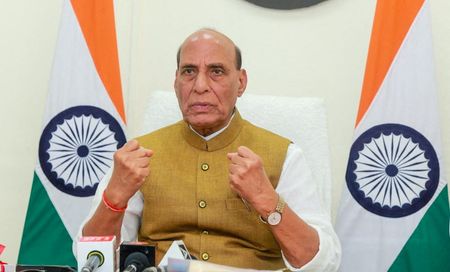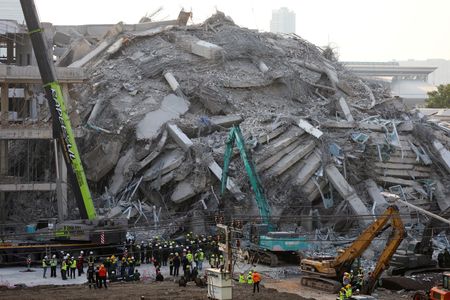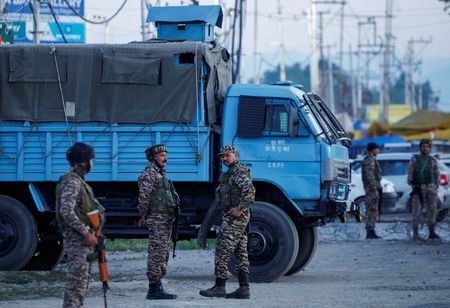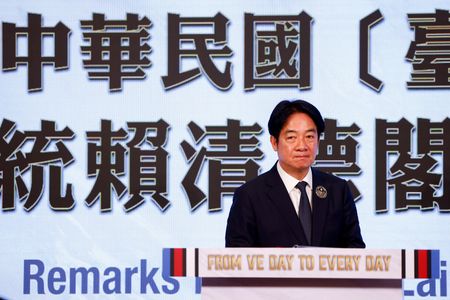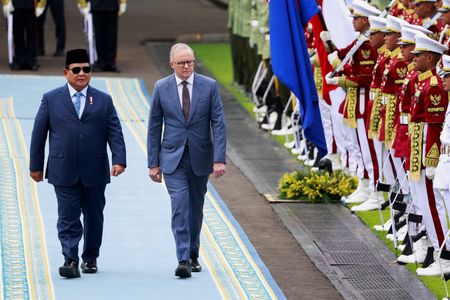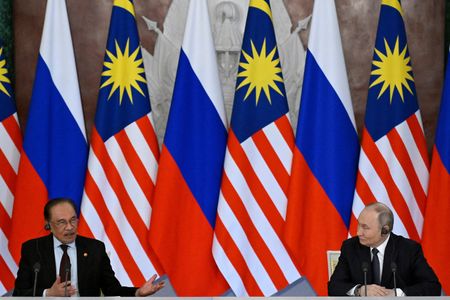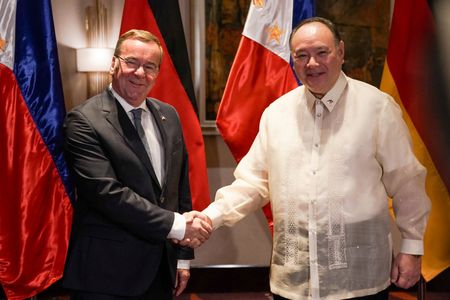NEW DELHI (Reuters) -The International Atomic Energy Agency should take charge of Pakistan’s nuclear weapons, India’s Defence Minister Rajnath Singh said on Thursday, days after the nuclear-armed neighbours ended their worst military conflict in nearly three decades.
Deadly fighting broke out between the old enemies last week after India struck what it said were “terrorist camps” in Pakistan in retaliation for an attack in Indian Kashmir last month that killed 26 men, which it said was backed by Pakistan.
Islamabad had denied the allegations and both countries sent missiles and drones into each other’s airspace in the days that followed, before they reached a truce on Saturday.
“Are nuclear weapons safe in the hands of such an irresponsible and rogue nation?” Singh said while addressing soldiers in Indian Kashmir’s summer capital Srinagar. “I believe that Pakistan’s nuclear weapons should be taken under the supervision of IAEA.”
Pakistan’s foreign ministry condemned the remarks in a post on X.
Singh’s remarks show India’s “insecurity and frustration” about Pakistan’s “effective defence and deterrence against Indian aggression through conventional means,” the ministry said.
The IAEA is a Vienna-based U.N. watchdog which monitors nuclear programmes to ensure they are peaceful. The IAEA monitors several Indian civilian nuclear facilities under a 2008 agreement.
India and Pakistan became nuclear powers after they conducted tit-for-tat nuclear tests in 1998 and their decades-old animosity has made the region – the world’s most populous – one of its most dangerous nuclear flashpoints.
The latest military conflict between the South Asian neighbours spiralled alarmingly on Saturday and there were briefly fears that nuclear arsenals might come into play as Pakistan’s military said a top body overseeing its nuclear weapons would meet.
But the Pakistani defence minister said no such meeting was scheduled.
Military analysts said this may have been Pakistan’s way of hinting at its nuclear option as Islamabad has a “first-use” policy if its existence is under threat in a conflict — meaning Pakistan might proactively launch a nuclear strike at an enemy even if it had not been attacked by that enemy’s nuclear weapons.
DISPUTE SETTLED, SAYS TRUMP
Elsewhere, U.S. President Donald Trump said that the dispute between the South Asian neighbours had settled, after he urged the two countries to focus on trade instead of war.
“I hope I don’t walk out of here in two days…to find out that is not settled, but I think it is settled and we talked to them about trade, let’s do trade instead of doing war,” Trump told U.S. troops at a base in Qatar.
Trump was the first to announce the ceasefire on Saturday, indicating it was clinched due to Washington’s diplomacy and pressure.
Pakistan has thanked Washington for its involvement but the foreign ministry did not immediately respond to a request for comment on his latest statement.
There was no fresh response from New Delhi as well on Thursday. The Indian foreign ministry said earlier this week that the issue of trade did not come up in talks with Washington and that the understanding to stop the fighting was reached directly with Islamabad.
Indian Prime Minister Narendra Modi said on Monday that India would strike at terrorist hideouts across the border again if there were new attacks on India and would not be deterred by what he called Islamabad’s “nuclear blackmail”.
Pakistan rejected Modi’s statements as being “provocative and inflammatory assertions”, saying it represents a dangerous escalation.
Hindu-majority India and Islamist Pakistan have fought three wars in the past, two of them over the Himalayan region of Kashmir, which they both claim in full but rule in part.
India also blames Pakistan for supporting Islamist militants battling security forces in its part of Kashmir, but Islamabad denies the accusation.
(Reporting by Surbhi Misra and Tanvi Mehta in New Delhi and Nayera Abdallah and Gram Slattery in Doha, writing by Sakshi Dayal; Editing by YP Rajesh, William Maclean)

